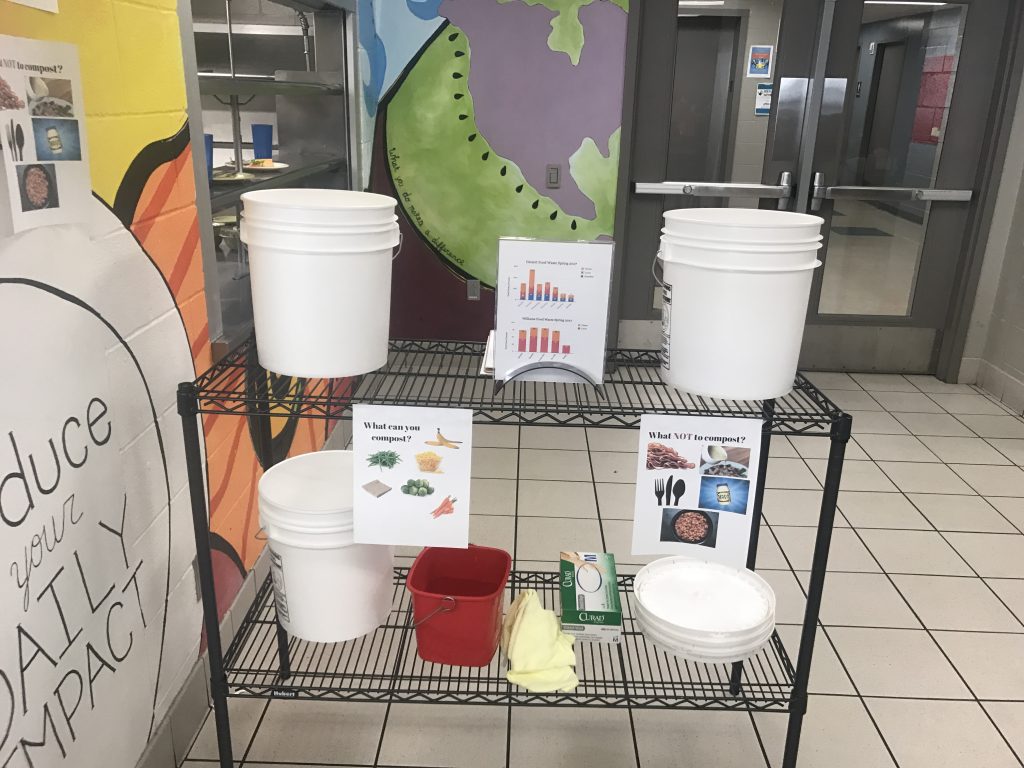
Why let it spoil when you can put it in the soil?
Senior accounting and Spanish double major Abby Irhke researched the topic of composting as she was writing a proposal for an English class. However, this research turned from writing a paper into a proposal with serious potential.
“My big goal is to one day have full-time composting back here at Bradley. We’ve done it once and I believe we can do it again,” Ihrke said.
According to food service director Gayle Hanson, the university discontinued its composting project in 2014 when the company, located in Bloomington, IL, facilitating the project no longer offered the service.
“We, as students, waste approximately 260 pounds of food per day within the dining halls specifically. At a cost of $1.70 per pound, this totals to about $35,000 per semester,” Irhke said.
After seeing these numbers, Irhke said she was motivated to take action.
“In an attempt to get information for my paper, I met with dining services,” Irhke said. “The meeting was super insightful and helped me realize that this proposal could be more than just a project.”
Irhke said she had always been interested in helping to keep the environment clean, and it seemed as though this opportunity had begged for her to take it.
“Getting the composting program moving required getting in contact with somebody willing to take out waste, helping them set up a simple compost structure, getting approval from our dining services to collect and finding a few awesome people to help me collect,” Irhke said.
When reaching out to staff members, Irhke chose Hanson to help her out with the idea.
“Abby has a passion for sustainability,” said Hanson. “She came to me last year and said she really wanted to come up with an idea, so she put together a business plan and I reviewed it with the [former] executive vice president of finance Gary Anna and we also reviewed it with the director of public relations, Renee Charles.”
Hanson said the next step was to determine if composting could be done with a local gardener. It was approved, and the Environmental Club, led by Irhke, took over the project.
“A large part of why I try to do this is to help make people aware of the consequences of wasteful living,” Irhke said.
So far, the group has tested out composting a few times last spring, and have plans to continue the efforts this fall. They are planning to work with Good Earth, a local company that provides composting service.
“Moving forward I want to inform as many people as I can. Truthfully, the program is quite small in the grand scheme of it all, but if a few people come away from it having learned something, then I am happy,” Irhke said.
This doesn’t mean, however, that Irhke is willing to settle. Irhke said making Bradley University environmentally conscious is both a step towards the idea of the school that the administration talks so much about, and a step towards ensuring that we have a clean, healthy earth for our children to live on.
Sept. 24 will be the last composting for the semester.
According to Hanson, dining services is making efforts beyond composting to reduce waste by posting statistics each year. Currently, these numbers range between 900 and 1,000 pounds of wasted food per week.




